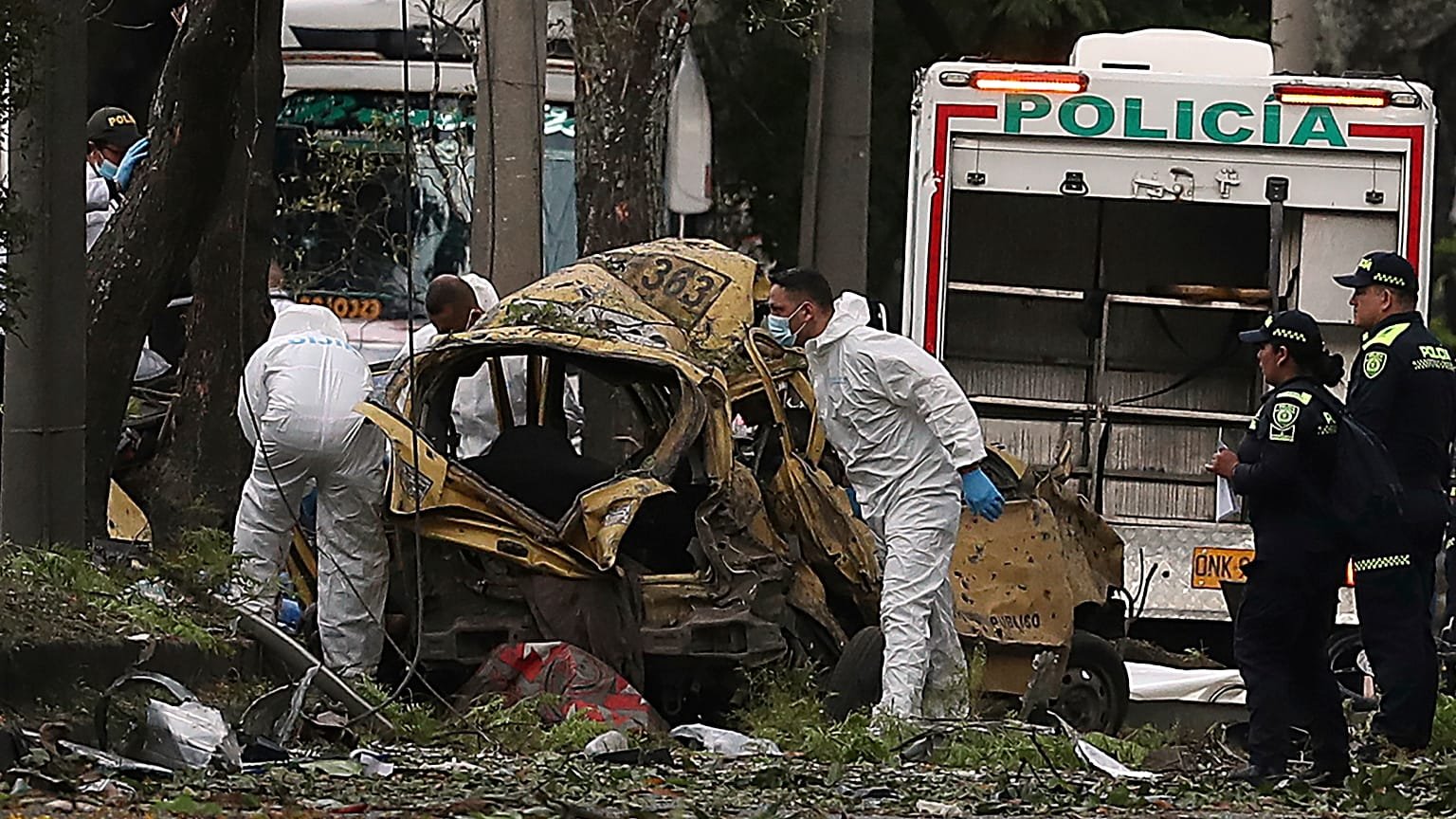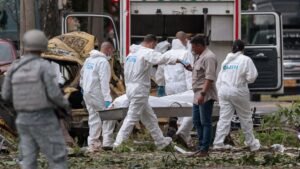Devastating attacks struck Colombia today, claiming the lives of numerous security personnel and civilians alike. The coordinated car bomb and helicopter attack represent the deadliest single-day violence against law enforcement in recent years. These tragic events underscore ongoing security challenges facing the South American nation daily.
Breaking Down Today’s Coordinated Attacks
Multiple explosive devices detonated across different regions within hours of each other this morning. The first attack on a helicopter occurred during routine patrol operations near the Venezuelan border region. Armed groups using sophisticated weapons systems targeted the aircraft carrying several officers aboard.
Emergency responders rushed to crash sites where the debris field extended across several acres of terrain. Local hospitals received wounded survivors requiring immediate medical attention and specialised trauma care procedures. The helicopter attack represents an escalation in tactics used against Colombian security forces.
Meanwhile, the devastating car bomb explosion rocked a police station in another province simultaneously. The coordinated timing suggests careful planning and intelligence gathering by criminal organisations operating there. Blast damage affected nearby buildings and injured dozens of innocent civilians passing through.
Understanding the Human Cost and Casualties
Current reports confirm at least 17 people died in today’s twin attacks across Colombian territory. Among the victims, multiple police officers lost their lives while serving their communities with dedication. Family members and colleagues mourn these brave individuals who made the ultimate sacrifice today.
The casualty count includes both security personnel and innocent civilians caught in the crossfire, unfortunately. Medical teams continue treating critically injured survivors at regional hospitals throughout the affected areas. Some victims remain in intensive care units fighting for their lives tonight.
Rescue operations continued throughout the afternoon as teams searched through rubble and debris fields. Emergency workers used specialised equipment to locate any additional victims trapped beneath collapsed structures. The full extent of injuries and damage may not become clear for days.
Regional Security Implications and Context
This coordinated assault highlights ongoing struggles between Colombian authorities and various armed groups operating nationwide. Drug trafficking organisations continue challenging government control over remote border regions and rural areas. The sophisticated nature of today’s attacks indicates access to military-grade weapons and training.
Border security remains a persistent challenge as criminal networks move freely between Colombia and neighbouring countries. Venezuelan migration patterns have complicated law enforcement efforts in frontier regions significantly over recent years. Resource limitations often prevent adequate security coverage across Colombia’s vast rural territories.
International observers note increasing boldness among criminal organisations targeting state security forces directly rather than avoiding confrontation. This tactical shift represents a dangerous escalation that could destabilize regional security further. Colombian military leaders are reassessing protective measures for personnel and facilities accordingly.
Government Response and Security Measures
President Gustavo Petro condemned the attacks and ordered increased security protocols for all law enforcement personnel. Additional military units were deployed to the affected regions to prevent further violence and protect remaining infrastructure. The government also announced enhanced intelligence sharing between different security agencies nationwide.
Key response measures include:
- Immediate deployment of elite counter-terrorism units
- Enhanced protection for police stations and military bases
- Increased aerial surveillance of border regions
- Expanded intelligence cooperation with neighbouring countries
Security forces launched comprehensive operations to identify and apprehend those responsible for today’s deadly attacks. Investigators are analysing explosive residue and gathering witness statements to build cases against perpetrators. International assistance may be requested if evidence points to transnational criminal involvement.
Impact on Local Communities and Daily Life
Residents in affected areas now face heightened security concerns and potential curfew restrictions in the coming days. Schools and businesses near attack sites remain closed while authorities assess ongoing threats to public safety. Community leaders are working with officials to restore normalcy while maintaining necessary precautions.
The psychological trauma extends beyond immediate victims to entire communities witnessing such devastating violence firsthand. Mental health support services are being mobilised to help residents, especially children, cope with today’s tragic events. Local faith leaders also provide comfort and guidance during this difficult time.
Economic activities in affected regions may slow as businesses evaluate security risks and insurance implications. Tourism, already challenged by Colombia’s complex security situation, could face additional setbacks following today’s high-profile attacks. Government officials emphasise commitment to maintaining essential services despite ongoing threats.
Looking Forward: Challenges and Solutions
Colombian authorities face the difficult task of preventing similar attacks while maintaining constitutional rights and freedoms. Balancing security needs with democratic principles requires careful consideration and community input throughout the process. The international community watches closely as Colombia navigates these complex challenges ahead.
Enhanced cooperation between military, police, and intelligence agencies could improve early warning systems for future threats. Technology solutions, including surveillance networks and communication systems, may help coordinate responses more effectively. However, addressing root causes requires comprehensive approaches beyond security measures alone.
The path forward involves strengthening institutions, improving social conditions, and reducing inequality that criminal organisations exploit. Education, job creation, and infrastructure development in rural areas could undermine recruitment efforts by illegal groups. Today’s tragic events serve as stark reminders of the work still needed to achieve lasting peace.








Be First to Comment